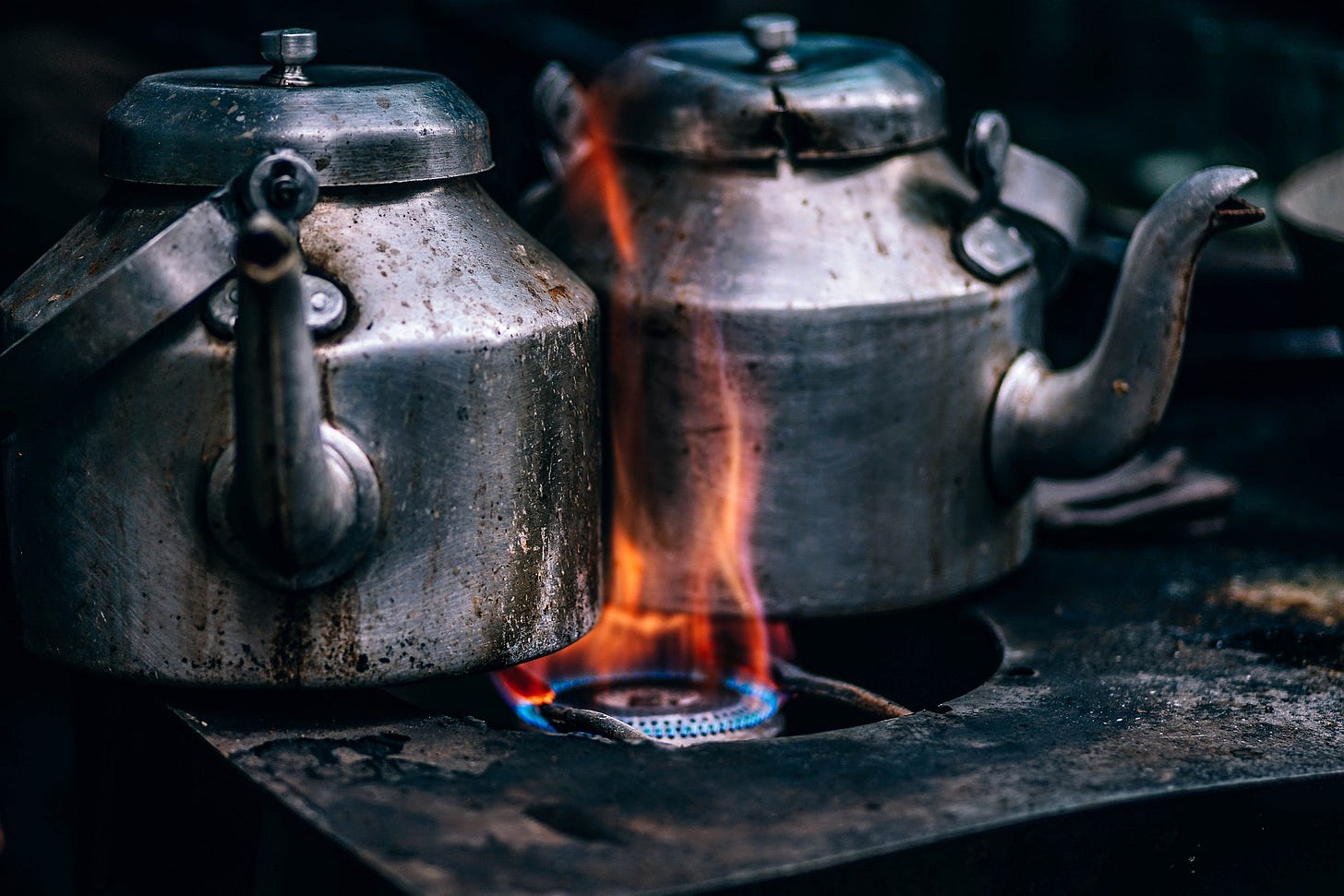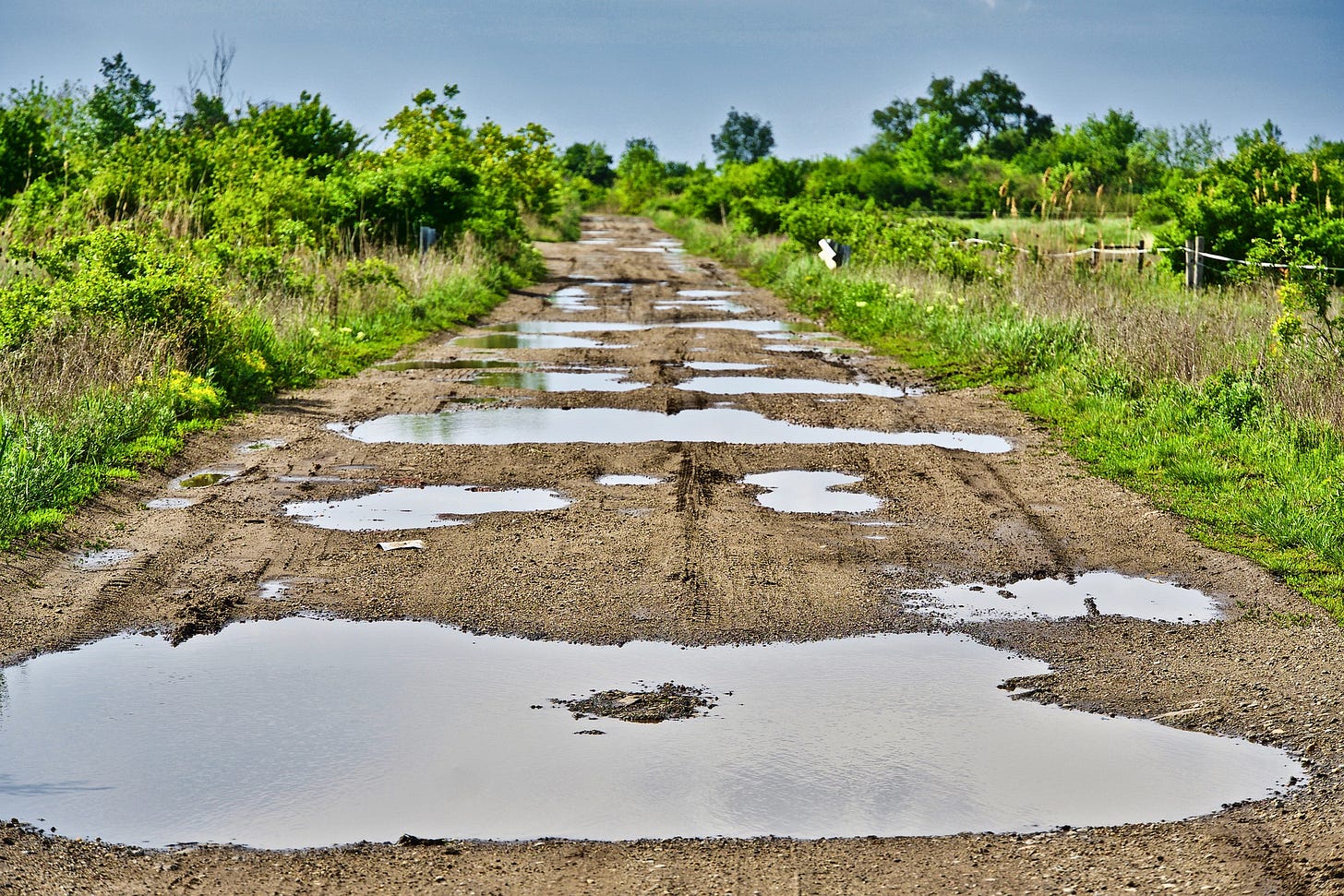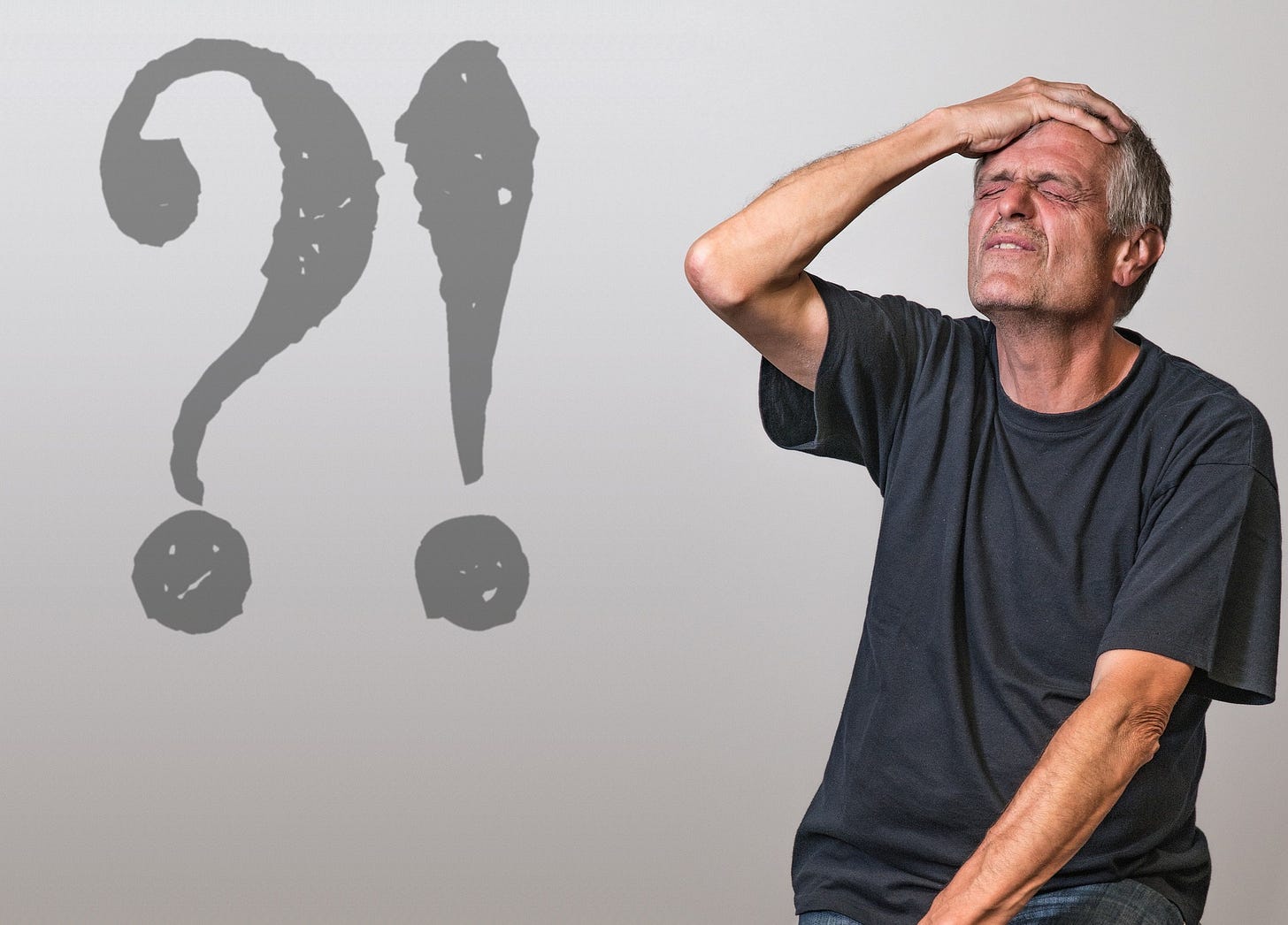In the last week of February, I made a trip to Bangalore to record a few episodes for The Seen and the Unseen. I recorded seven episodes in eight days — the spare day went towards conducting my writing webinars. As each episode can last five hours, and I needed to read at least ten books during this time, I optimised for time and chose a hotel opposite the studio where I was recording. I would not have to spend time commuting.
And this hotel, my friends, is where my story begins.
On my first morning there, I had a recording at 10 am. While panic-prepping in the morning, I realised that there was no hot water in the bathroom. (I have stayed here before, and everything normally works.) I am not a fan of bathing, but as I was actually going to step out and meet someone, it felt necessary. I made frantic enquiries, and was told that the boiler or some similar thing had burst, and this had never happened before, and they would send me a bucket of hot water for now.
I got through the bath, got through the recording, arrived back at the hotel, and was told the problem had been fixed. ‘There is hot water now, sir,’ the gentleman at reception told me. ‘You can not only have one bath now, you can have fifty baths. But you will remain a filthy bastard.’
Okay, so he didn’t say that last bit, but the hot water was back. That evening, I decided to take a quick shower before sleeping. (Or rather, napping for three hours before panic-prepping for the next episode.) Hot water did come, but it came when I turned my tap in the cold-water direction. If I turned it in the hot-water direction, I got cold water. This seemed like a small quirk, even a charming eccentricity, and I thought no more of it after my shower.
The next morning, I went to the loo to take a dump.
(I am sorry for using these words, but there is no delicate way to say this. I sat to shit? I came to crap? I partook in the prolific production of pestilential poop? How does one say these things?)
And then I reached my favourite part of the process, the soothing jetspray. After about four blissful seconds of satisfying hygiene, my thoughts went to hot water again. This was because my ass was on fire. The jetspray was emitting boiling water.
I am the kind of person whose mind, when not engaged in fantasy, thinks about first principles and root causes. I figured right away that after fixing the boiler, or whatever the hot-water-production machine was called, the hotel must have mixed up the supply channels. The hot water went into the cold-water channel, and the cold water went into the hot-water channel. And since the jetspray got the cold-water channel, my buttocks were being cooked.
Well, I got the job done, and here’s the unusual thing: for the next week that I was there, I did not complain about this to the hotel staff. I did make sure I did not have an Andhra or Kolhapuri meal — it would not do to have fire travel down when fire was also soon going to be travelling up. But I didn’t try to get the problem fixed. Why?
Here are some possible reasons:
When I was not using the jetspray, the problem didn’t seem urgent to me. We live as if we will never die. I lived as if I will never need to use a jetspray. (How our delusions evolve.)
When I actually got down to using the jetspray, I figured out a way to optimise for time and not expose myself to the hot water for too long. In a worst-case scenario, I had both toilet paper and lota available to me. A toilet buffet, as it were.
A part of me enjoyed that feeling of boiling water on my ass. I cannot explain this. You will need to experience it for yourself. Figure out a way to have hot water come out of your jetspray, and optimise for preferred velocity.
Opportunity cost. I had other things to do that could not wait, such as panic-prepping.
It was too much of a hassle to get this fixed. I’d have to explain the problem to hotel staff, and there was a chance that they’d mess it up while trying to fix it, and I wouldn’t get hot water at all. Hell, the boiler might even blow up, killing us all.
And so, hot-water-from-jetspray became the new normal.
Governance is broken — and we’re cool with it
Hot-water-from-jetspray is a privileged-person problem. If you live in India, far worse things surround you and happen to you every day. You don’t try to fix them, and you don’t even complain. They’ve been normalised.
I asked a few friends of mine via Whatsapp to come up with examples of bad governance or policy that have been normalised. Within seconds, examples flooded in. (They don’t call it Whatsapp University for nothing.)
Here are a few of them:
Filthy streets, and potholes that keep recurring because contractors are incentivized to repair roads badly, so that they get a contract to repair it again every year, with the relevant babus getting a cut, thus setting their incentives as well.
The abysmal state of our education. (The most downloaded episode of The Seen and the Unseen is about this, with Karthik Muralidharan. Do listen.)
No rule of law. The police is great at rent seeking, but doesn’t actually solve too many cases. The process is the punishment even for complainants.
Our legal system, in which cases pile up for years and decades and — this is true — even centuries. You can listen to my old episodes with Alok Prasanna Kumar and Shruti Rajagopalan for more.
Taxes, both indirect and direct. If you pay a third of your income to the government, you are effectively a slave to them from January 1 to March 31 every year. We have normalised this part-time slavery — and we have also normalised the fact that our taxes are spent so badly. (I used to do a series on this on my old blog, but stopped because there’s just so much of it.)
No free speech. Our constitution pays lip service to it, but immediately introduces so many caveats that it becomes meaningless. The First Amendment, for example, was a disaster for our democracy, as Tripurdaman Singh described in this book and this episode.
Encroachments on public land.
Import tariffs. As I wrote in my old piece, The Great Redistribution, such tariffs redistribute money from the poor to the rich. Yes, from the poor to the rich. Many government interventions do this, in fact.
Poor government statistics. We need information to hold the government accountable. When much of it has to come from the government itself, you can expect official data to be fudged, opaque or suppressed. Experts like Rukmini S (1 and 2), Pramit Bhattacharya, Puja Mehra, Shrayana Bhattacharya, Vivek Kaul and Rajeswari Sengupta have spoken about this at length on The Seen and the Unseen.
Hindi as an official language. Is this a problem? In all the states that don’t speak Hindi, yes, of course.
The anti-defection law, which has ended political discourse in parliament, and means that the Lok Sabha can now be run from an Excel sheet. Barun Mitra and MR Madhavan had more to say in the episodes they did with me.
Price controls, such as the price caps on cab aggregators in Karnataka, which ensure that it is hard to get a cab at peak hours. Why so? Because, as I wrote here, price controls always lead to shortages.
The biggest of these, of course, is poverty. 75 years after Independence, it is shocking that we are still so poor — and that those of us who are not have normalised the poverty around them. The beggars at the traffic signal are invisible to us.
Every day, around 3000 children in India die of starvation, and one in every four children is malnourished. This is a moral calamity we have normalised. As I wrote in a column at the time the pandemic started, we will overcome the Covid crisis — but what can we do about the bigger ongoing disaster that is the Indian state?
We are like this only
So why don’t we care? Why have we normalised all this? Scroll up and you will find that all the reasons I gave for my jetspray problem apply here as well.
Our lives are too busy for us to complain about every damn thing. We feel that much of it is outside our control. We do jugaad to get by. And indeed, the cost of caring, leave alone complaining, may be so high that it would be rational to just get on with our lives.
Public choice theorists have a term for such citizen apathy: rational ignorance. Given that our vote or our voice is so unlikely to make a difference, why waste time and effort? (And yes, I wrote an essay about this as well: The Economics of Voting.)
Those famous lines from Kashi Ka Assi, slightly paraphrased for my family audience, sum it up well:
Bhaad mein jaaye duniya.
Hum Bajaaye Harmuniya.
(As the world goes to hell,
I play my harmonium.)
So now you know why I boiled my buttocks.
Does the state make you facepalm?
Reality is wilder than fiction. My friend Mohit Satyanand, who writes a great newsletter called Gimme Mo, shared this anecdote with me today morning. With his permission, here we go:
My favourite story is when the oil companies applied to Delhi Police to increase the number of CNG stations. (All public transport in Delhi is CNG-fuelled.)
Delhi Police refused permission with words to this effect: “The existing CNG pumps are very crowded, the taxis and autos spill out into the road and create traffic jams. We don’t want the problem to get worse.”
Sigh. Harmunia time.
By the way, my thanks to Mohit, Kumar, Suyash, Alok, Lahar, Gabin, Sumant and Salil for coming up with many of the examples listed above. We are all officially sad for the rest of the day. Kindly organise entertainment.
Also, please subscribe to this newsletter. It’s free, and I need nothing.






